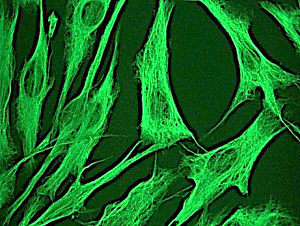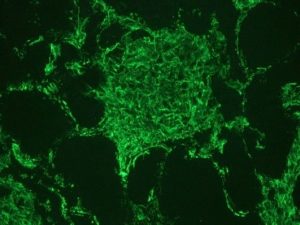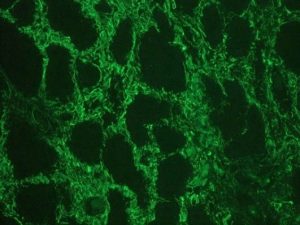News
Recombinant Versions of a Popular Vimentin Antibody Provide Researchers With Greater Flexibility
Vimentin is a 57kDa class III intermediate filament protein, found mainly in mesenchymal cells. Like other forms of intermediate filament protein, it commonly colocalizes with microtubules to stabilize cytoskeletal interactions and provide cellular strength and support. Vimentin over-expression is a hallmark of many cancers, correlating with increased tumor growth and invasion1. Due to its mesenchymal expression pattern, it is often used in conjunction with keratin (an epithelial cell marker) to identify cells undergoing an epithelial-to-mesenchymal transition (EMT); this process is associated with cancer metastasis2.
Researchers wishing to study this product frequently employ immunostaining techniques such as Western blotting, immunocytochemistry, or IHC. To support these efforts, we recently developed two recombinant versions of our popular anti-vimentin mouse monoclonal antibody, RV202. These are RV204, a mouse monoclonal, and RV205, a rabbit monoclonal. Both antibodies were produced by cloning the sequence of RV202, however RV205 has been species switched to provide researchers with an additional level of flexibility in experimental design. The recombinant nature of both products assures consistent performance and reliable supply, and both deliver the high-quality data typical of all Exalpha Biologicals antibodies.

Indirect immunofluorescence staining of normal human dermal fibroblasts in tissue culture with MUB1903P (diluted 1:250), showing the specific cytoskeletal pattern of vimentin intermediate filaments.


Indirect immunofluorescence staining of human kidney tissue sections with MUB1904P (diluted 1:1000), showing the specific pattern of vimentin in the mesenchymal cell types, such as fibroblasts in the connective tissue and endothelial cells in blood vessels. As expected, no reactivity is seen in the epithelial cell compartment.
- PMID 21637948
- PMID 30594349
